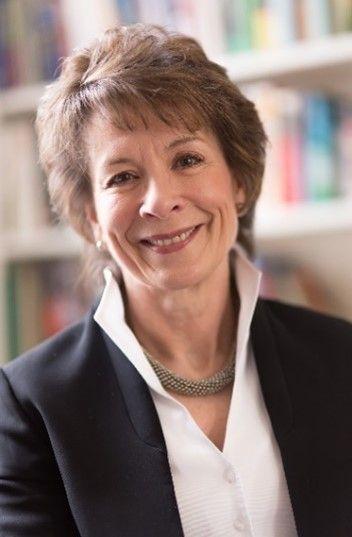International Women’s Day is an occasion celebrated globally on 8 March every year to pay tribute to the cultural, political, and socioeconomic achievements of women. It is therefore an important day of celebration, accountability and reinforcement for employers looking to entrench their vision for more equitable workplaces, where the contribution of women is valued and recognised by all.
The theme for International Women’s Day 2022 is #BreakTheBias, a theme that demands of everyone to imagine a more gender equal world – a world that is diverse, equal and inclusive, free of bias, and that celebrates difference.
Thrive4Life is honoured to have esteemed gynaecologist and women’s health expert Professor Dame Lesley Regan share her thoughts on the significance this occasion holds for workplaces and society at large. Her work in building education across what she calls the entire “life course” of women’s health, from adolescence to women’s reproductive years and beyond, marks an invaluable contribution to her vision of gender equality.
This comes ahead of a livestreamed talk Professor Regan will deliver on 8 March 2022 in partnership with Thrive4Life as part of our mission to support organisations with promoting employee health and wellbeing at work. Professor Regan will be discussing the various things that women should be looking out for across the different stages of their lives.
To find out more about this livestreamed talk or to arrange access for your staff, please get in touch.

Dame Lesley Regan
Professor of Obstetrics and Gynaecology at Imperial College’s St Mary’s Hospital Campus, and Honorary Consultant in Gynaecology at the Imperial College NHS Trust.
Professor Dame Lesley Regan is a world-renowned gynaecologist recognised globally for her outstanding contributions to women’s health. She recently authored the Better for Women report, a policy outline aimed at improving the health and wellbeing of girls and women.
At one with International Women’s Day
International Women’s Day has a personal relevance for Professor Regan’s life. Born on 8 March, she in fact shares a birthday with the occasion. This coincidence set the scene for what was to become a lifetime commitment to the cause. As she explains, “my father was a wonderful advocate for empowering women through education.” From a young age, her father’s influence helped her to recognise the vital role that education and awareness play in empowering women to take charge of their lives.
Today, International Women’s Day continues to hold a special place in Professor Regan’s heart. Asked what the day means to her personally, she says she believes it is “important to have a day to recognise women and the enormous problems that women have faced across the world.”
These problems broadly relate to the position occupied by women in society. Professor Regan emphasises the fact that although women make up 51% of the global population, they represent a much higher proportion of the primary carers in society. Women tend to be the ones who keep families together, nurture children, and do most of the unpaid caring roles. Likewise, in the work context, women are often burdened with extra responsibilities at home while still being expected to carry out their work to a high standard. It is therefore so important that their achievements are recognised.
Professor Regan’s own family responsibilities play a central role in her life. Asked what she considers her greatest personal achievement as a woman to be, she says it would have to be her twin daughters. “They are quite extraordinary young women and I’m very proud of them.” Her dual role as a mother and world-renowned health expert is an inspiration to us all.
Keeping the life course in view
Professor Regan is a passionate advocate for what she calls the “life course” approach to women’s health. This is an approach that addresses the various biological, behavioural and social factors that shape women’s health and wellbeing at the different stages of their lives.
“If I was to sit down with you, or a female in your family, with some paper and a pen, I could map out the entire life course and show you all the predictable things that are likely to happen to women throughout their lives,” says Professor Regan. These include everything from the beginnings of menstruation to sexual health, pregnancy, menopause and beyond.
“The life course doesn’t just convey what’s going to happen at different times. It also emphasises that the events of each era of a girl or woman’s life have an impact on the next year.” And this is not to say that it is ever too late to become proactive in looking after your health. The fundamental point Professor Regan makes is that even if you haven’t been introduced to the life course concept until your 50s, it’s never too late to do something. Workplaces especially can play a pivotal role in empowering staff to take preventative action, no matter where they are in the life course.
What is powerful about the life course approach is that it offers women the potential for early intervention to reduce the risk of certain diseases from developing. The concept not only seeks to transform public healthcare, but also plays an important role in educating women proactively, recognising the lack of general information and support available.
Professor Regan encourages open discussion about women’s health in educational settings. “With easily accessible and reliable information, women can take control of their own health.” This is an opportunity for employers to assert their place as leaders in supporting the health and wellbeing of their female staff, something that has all too often been neglected in the past.
Breaking the bias
Professor Regan’s lifetime commitment to women’s health is inextricably linked to her vision of gender equality, resonating strongly with this year’s theme of #BreakTheBias. By empowering staff with key knowledge about their health and wellbeing, so too can workplaces play a leading role in promoting gender equality this International Women’s Day.
Professor Regan pays particular tribute to the United Nations’ Sustainable Development Goals, which stipulate among others the need to empower and educate women to achieve gender equality by 2030. She believes this marks a massive improvement upon the previous Millennium Development Goals, which focused on achieving particular objectives such as improving maternal health and reducing maternal mortality rates.
While these objectives are important, Professor Regan feels strongly that a more holistic approach to women’s empowerment is needed. Women should be educated on basic matters such as family planning, sexual health, fertility, contraception and abortion care, as all of these shape a woman’s life course in fundamental ways.
Likewise, basic matters such as these can pose enormous disruption to women’s work lives if they are not equipped with sufficient knowledge to take control of their health. Again, this is an important opportunity for employers to stand up to the task and provide staff with the support they need.
“One of the key parts of the recipe is to put control of things like fertility and family planning into the hands of a woman,” explains Professor Regan. While this message speaks powerfully to the importance of education, it is as much about empowering women’s personal decisions as it is about unlocking women’s immense contribution to businesses and the economy. Improving education on women’s health in the workplace can help businesses achieve their goals of gender equality.
Inspiring women to achieve
“One thing I always tell people who come to me for advice or want mentoring is that you need to keep remembering that opportunities never make appointments; you just have to grab them when you see them,” says Professor Regan. These words connect her work in women’s healthcare to her wider preoccupation with inspiring women to achieve.
It is precisely this wider preoccupation with which Professor Regan’s life course approach is entangled. Asked what advice she would give to any woman seeking to live a healthier and fuller life, she stresses the value of women keeping their entire life course in view. “Remember that when you get to be menopausal at 50 or 51, this is not the end of life, and even if you’ve got medical problems, you can still really mitigate these through lifestyle changes – you know, you can keep fit and exercise, and you can push the time that you become frail and fragile back along the graph by really looking after yourself. None of us live forever, but you want to live well while you’re still alive.”
This approach resonates with Thrive4Life’s mission to support organisations with promoting healthier and more proactive lifestyles in the workplace. Ill-health related absence and presenteeism cost UK businesses in excess of £90 billion every year, with trends clearly showing that work productivity is on the decline as a result of stress and poor mental and physical health. International Women’s Day is a pivotal moment for businesses to entrench their goals and support the needs of female staff.
Lifetime Essentials for Women’s Health with Professor Dame Lesley Regan, 8 March 2022
Professor Regan is set to deliver an exclusive livestreamed talk on 8th March 2022 in partnership with Thrive4Life to celebrate International Women’s Day. This will cover the various stages of a woman’s life course, providing insight into the key things women should be looking out for at the different stages of their lives.
To find out more about this talk or to arrange access for your staff, please get in touch.









